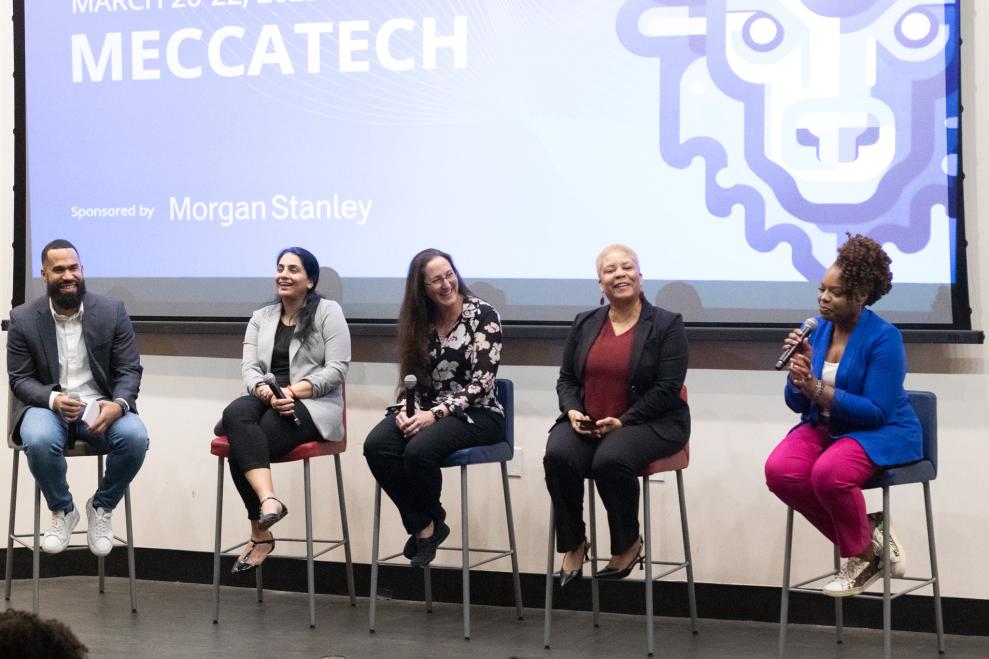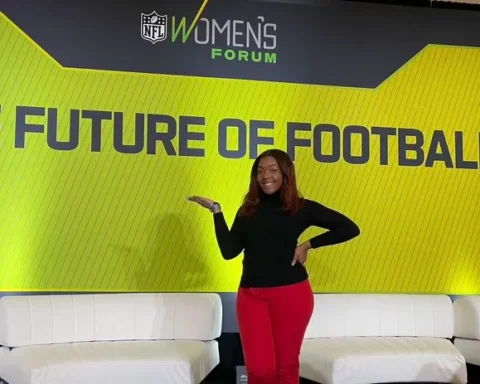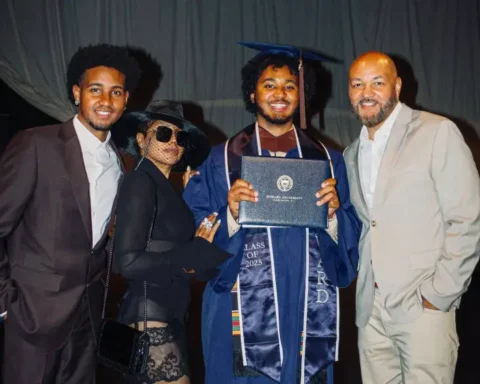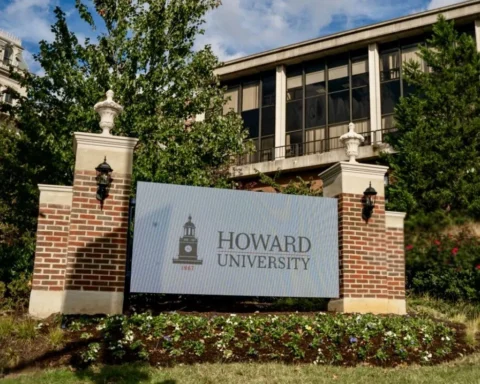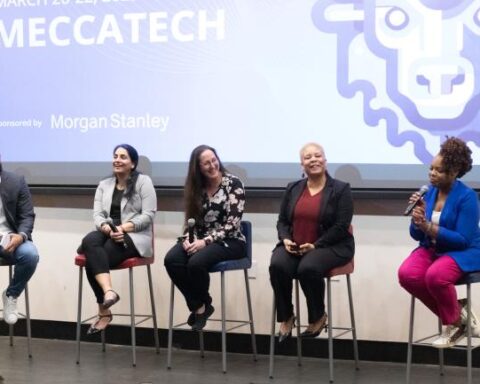Courtesy of Howard University
Howard University will make history April 3–4 as it hosts the first-ever HBCU CHIPS Network Conference, uniting over 20 HBCUs, industry leaders, and federal partners for an unprecedented collaboration on semiconductor research and workforce development.
The conference opens Thursday with remarks from Howard President Ben Vinson III, Provost Anthony Wutoh, and Senior Vice President for Research Bruce Jones. It will feature keynotes from Thomas Caulfield, chief executive of GlobalFoundries, as well as a CEO fireside chat with Todd Younkin, president of the Semiconductor Research Corporation.
Organizers of the conference emphasize that the event is far more than a symbolic gesture, noting that major companies are participating because they see Howard students as vital contributors to the future of the semiconductor workforce.
Breakout sessions and panels will cover topics ranging from quantum photonics and materials fabrication to AI’s role in chip design. Tech giants such as Google, Apple, and Northrop Grumman will be present, alongside dozens of faculty and student researchers from across the HBCU network. Agenda and registration details are available on the Howard University events calendar.
Marchon Jackson, associate vice president in the Office of Research, called the conference a major opportunity for students. He encouraged anyone with interest or curiosity in chip-making to attend.
“From a college student’s perspective, the conference opens up multiple lanes for careers after Howard in a competitive, high-growth field that the government is actively investing in,” Jackson said.
You don’t have to be deep into microelectronics. If you have a STEM background, or you’re still figuring out your path, this conference is something you should attend,” Jackson said.
Organizers stress that the event is more than symbolic, with major companies engaging because they view Howard students as key to the semiconductor industry’s future. The conference also supports Howard’s broader research strategy and underscores its unique status as the only HBCU with R1 designation.
The conference is a keystone event during Howard’s Research Month. It is being spearheaded by the CHIPS Network leadership team, including Pamela A.G. Clarke, senior director of research development of the Office of Research. Other leaders include George White, director strategic partnerships, Georgia Institute of Technology; Norfolk State University professor; and Frances Williams, vice president for research and sponsored programs, Clark Atlanta University.
The CHIPS Network has been vocal in its advocacy to ensure HBCUs carve out their place in the multibillion-dollar semiconductor space, particularly in the wake of the 2022 CHIPS and Science Act. The legislation allocated $50 billion for U.S. semiconductor manufacturing and R&D — but included no specific funding for HBCUs.
Despite limited direct inclusion, the HBCU CHIPS Network and its partners have forged ahead, participating in nearly every major CHIPS Act initiative. The network has partnered with institutions like the Georgia Tech, and industry leaders including Google, Micron, and GlobalFoundries. The network, which started as a movement with 12 HBCUs, has grown into a nationwide coalition.
“We have a responsibility to put every opportunity in front of our students and faculty,” Clarke said. “The CHIPS network is a vital force in advancing semiconductor research, education, and workforce development at historically Black colleges and universities.”
“By driving collaboration, innovation, and access, we’re empowering HBCUs to shape the semiconductor industry’s future and build a more inclusive tech landscape,” she continued.
Faculty at Howard are already integrating industry partnerships into the classroom — like Hassan Salmani’s Apple Silicon Design Lab — ensuring students gain real-time exposure to evolving microelectronics technologies.
Howard Research SVP Jones highlighted the conference as part of Howard’s broader strategic research vision, pointing to Howard’s leadership role as the only HBCU designated as a R1 University.
“Howard University is a global force in research and higher education,” Jones said. “This moment, this conference, is about mobilizing that power. We are not just showing up; we are shaping the future. Howard has earned its place at the table, and we’re bringing others with us.”
Others on the leadership team include: Taiesha Smith, senior program manager, HBCU-MSI Research Partnerships; Majed Dweik, vice president of research and economic development at Alabama A&M University; and North Carolina A&T State University professor Shyam Aravamudhan, North Carolina A&T State University. Clarke serves as co-chair for the HBCU CHIPS Network Conference, alongside Texas Southern University professor Daniel Vrinceanu.
HBCU CHIPS Network Member Institutions include:
Alabama A&M University, Alabama State University, Bowie State University, Central State University, Clark Atlanta University, Delaware State University, Dillard University, Florida A&M University, Fort Valley State University, Georgia Institute of Technology, Hampton University, Howard University, J.F. Drake State Community & Technical College, Jackson State University, Meharry Medical College, Morehouse College, Morgan State University, Norfolk State University, North Carolina A&T State University, Prairie View A&M University, Savannah State University, Southern University and A&M College, Spelman College, Tennessee State University, Texas Southern University, Trenholm State Community College, Tuskegee University, University of the District of Columbia, Virginia State University, Wilberforce University, and Winston Salem State University.

